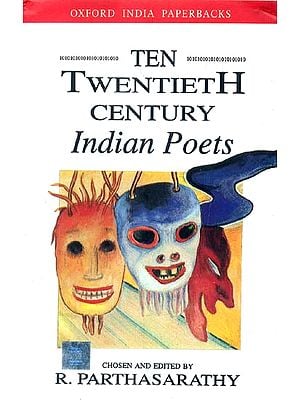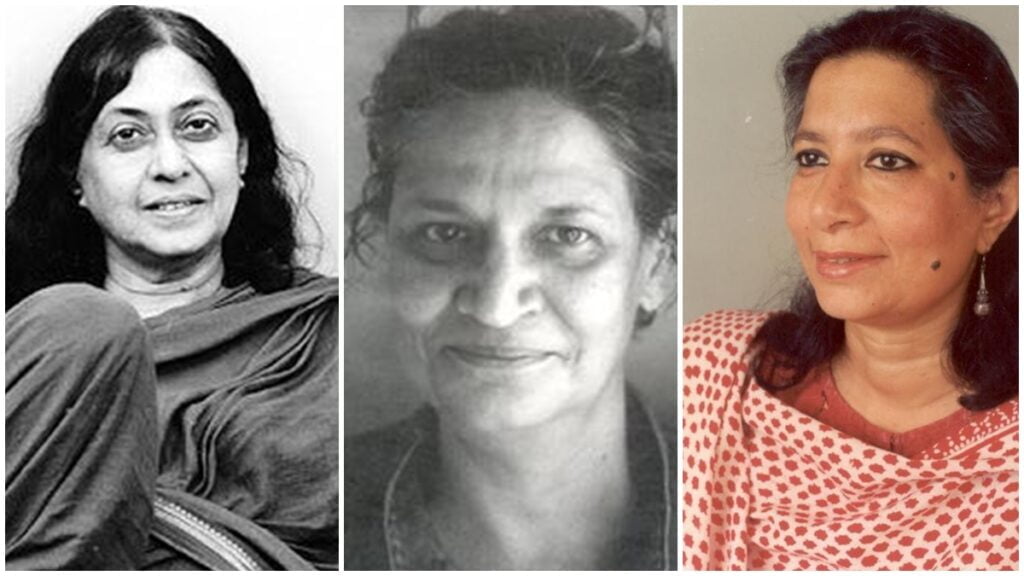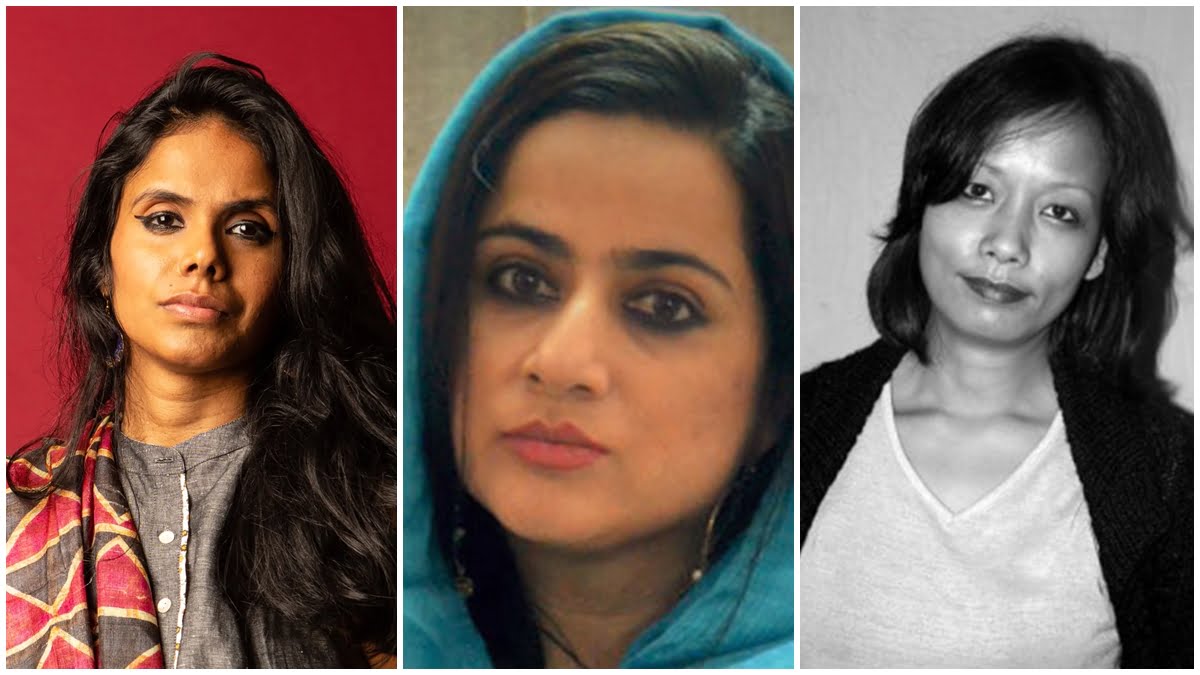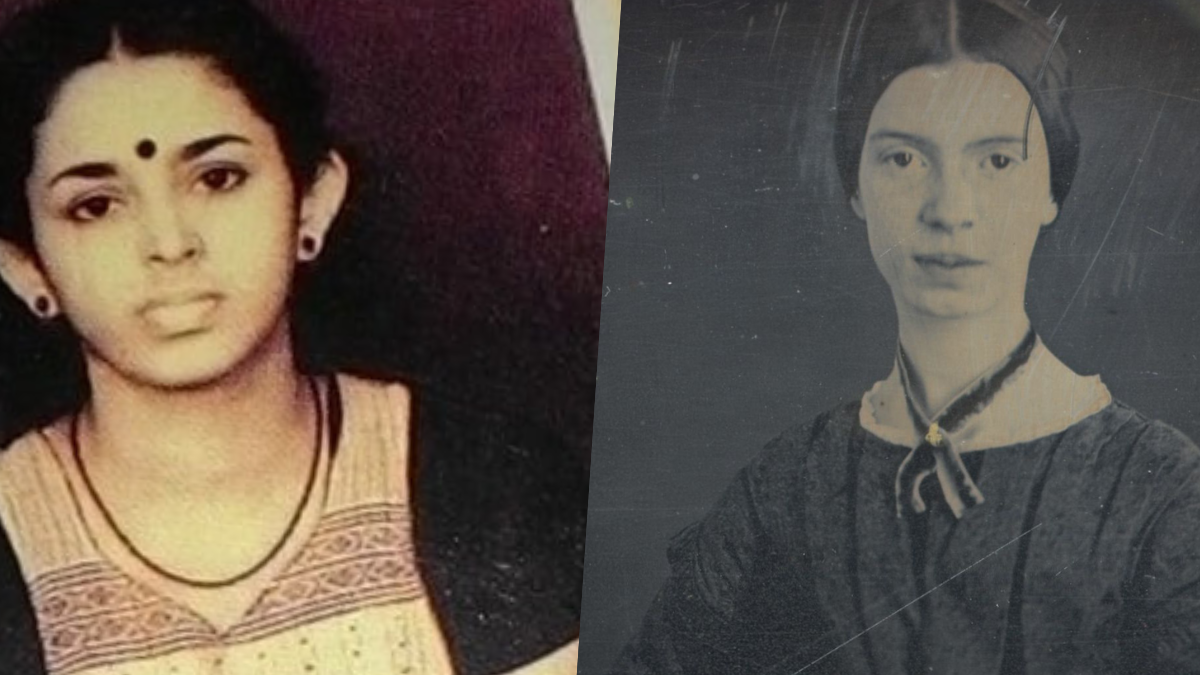Literary canons have always served as one of the most important points of discussion within academic circles. There have always been heated debates among literary scholars, professors, teachers, etc. on the subject of inclusion and exclusion in the canon. Literary canons are often understood and seen as a crucial apparatus through which ideologies, ideas, theories, tenets, etc. are instilled within young minds. More so, they are perceived as significant tools through which country’s mindsets are shaped/reshaped, and, therefore, are instrumental in deciding the course of a nation. Therefore, the process of canon formation is not an apolitical act, and, hence, the politics of inclusion and exclusion needs to be questioned and challenged in today’s time and age.
The canon of Indian English poetry is veritably exclusive in nature. Its exclusivity is marked by myriad factors. However, the factor that comes as severely pronounced is its male centric nature. Ostensibly, Indian English poetry canon gives undue emphasis on male poets, and relegates the women poets to the periphery.
Also read: Anamika’s Reshaping Of The Hindi Canon: The 2020 Winner Of Sahitya Akademi For Hindi Poetry
The canon of Indian English poetry is veritably exclusive in nature. Its exclusivity is marked by myriad factors. However, the factor that comes as severely pronounced is its male centric nature. Ostensibly, Indian English poetry canon gives undue emphasis on male poets, and relegates the women poets to the periphery. The process of canon formation is not merely an assemblage of texts or writers, but is, in fact, a very deliberative, conscious act, and, hence, exclusion of women poets should not be seen as an act of naivete. In 1970s, when the process of anthologisation commenced, male poets were remarkably given a larger section in almost all the important anthologies of that period. As established publishing houses like Oxford University Press, Macmillan, etc had already given a legitimacy to a particular set of poets, other publishing houses, major or minor also began to include almost the same set of poets. Subsequently, women poets, even though much meritorious than the male poets and deserving of canonical position, remained at margins, failing to achieve any recognition or literary fame.
Anthologies, which are significantly instrumental in shaping the canon, have seemingly played a colossal role in shaping the Indian English literary canon, especially with regards to Indian English poetry. Anthology by nature is selective; selectivity marks canonicity, and, therefore, the relationship between canonization and anthologisation is intrinsically webbed and can be considered as two faces of the same coin. Macmillan’s anthology titled as Contemporary Poetry in English: An Assessment and Selection (1972), edited by Saleem Peeradina, was the foremost anthology, and commenced the process of canon formation in Indian English poetry. The poets included in this anthology were: Nissim Ezekiel, A.K. Ramanujan, P. Lal, Arun Kolatkar, R. Parthasarathy, K.D. Katrak, K.N. Daruwalla, Kamala Das, Gauri Deshpande, Mamta Kalia, Adil Jussawaala, Gieve Patel, Arvind Krishna Mehrotra and Saleem Peeradina. While this anthology was just a beginning towards the process of canonization of Indian English poetry, the anthology that put a seal on this canon was R. Parthasarathy’s Ten Twentieth Century Indian Poets (1976), published by Oxford University Press. The poets included in this anthology were: Keki N. Daruwalla, Kamala Das, Nissim Ezekiel, Arun Kolatkar, Shiv K. Kumar, Jayanta Mahapatra, Arvind Krishna Mehrotra, R. Parthsarathy, Gieve Patel, and A. K. Ramanujan.

This marginalisation of women poets created a false notion among readers that there were hardly enough female voices, which deserved to be canonised, during that period. However, if one unearths archives like literary journals and periodicals of that period, it can be seen that women poets published their poetry as much as male poets did.
This marginalisation of women poets created a false notion among readers that there were hardly enough female voices, which deserved to be canonised, during that period. However, if one unearths archives like literary journals and periodicals of that period, it can be seen that women poets published their poetry as much as male poets did. The following women poets frequently published in different literary magazines across the country: Kamala Das, Jaya Appasamy, Nasima Aziz, Chhanda Bose, Debjani Chatterjee, Margaret Chatterjee, Mary Ann Dasgupta, Ira De, Gauri Deshpande, Shree Devi, Leela Dharmaraj, Ketaki Kushari Dyson, Shama Futehally, Rohini Gupta, Mamta Kalia, Laksmi Kannan, Shyamasree Lal, Lalitha V. Maassen, Anna Sujatha Modayil, Sarojini Naidu, Chitra Prasad, Malathi Rao, Vimala Rao, Lila Ray, Shreela Ray, Gita Birla Sanghvi, Vera Sharma, Dorothy Sinha, Mildred Smith, and Monika Varma, etc.

The inclusion of different voices of female poets would have certainly expanded the canon, but as their poetics was not in alignment with that of the mainstream canon of Indian English poetry, they never achieved canonicity. However, the pursuit of P. Lal’s Writers Workshop to promote Indian English women poets remained unabated. In 1977, Writers Workshop brought out an anthology of post-independence Indian English women poets. The anthology titled as New English Poetry by Indian Women (1977) was edited by P. Lal himself. The seven poets anthologised here, except Monika Varma, had never been anthologised before, and hence was a fresh selection. In the preface, Lal stated his criteria of selection:
The criteria for inclusion in this anthology were: apart from possessing “high imaginative awareness” and employing “mature technique” the poet had to be Indian, preferably young, writing originally in English, and previously published in book form. The only exception is Monika Varma, who has had books appear earlier under the WW imprint. Her poems, because they are by a seasoned practitioner, offer interesting comparisons and contrasts with the work of the new poets.
Also read: The Wife: Exploring Women’s Writing In A Male-Dominated Canon
Therefore, contrary to the false belief that there were hardly enough female poets who deserved canonisation, there were several in number, but were unfairly and unjustly relegated to the periphery. However, as in recent times, the trend to question the mainstream canon has engendered within the literary academia, it is important to bring to surface such questions and bring changes within the canon.
Even today, there are several female voices that need to be recognised, acknowledged, studied and deserve to receive fame and acclaim are not included due to myriad unjust factors. A few examples of young female Indian English poets are as follows: Meena Kandasamy, Asia Zuhoor, Suniti Namjoshi, Smita Agarwal, Sujata Bhatt, Anjum Hasan, Reetika Vazirani, Jane Bhandari, Mona Zote, Karthika Nair, etc. In the present times, where the question of inclusivity becomes the most important one for our country, it is extremely important to revisit the canon of Indian English poetry, and question its exclusive nature. Robert Von Hallberg in his seminal work Canons rightly states, “A canon is commonly seen as what other people, once powerful, have made and what should now be opened up, demystified or eliminated together.”
References
Hallberg, Robert von. Canons. Chicago: University of Chicago, 1983. Print.
Lal, P, ed. New English Poetry by Indian Women. Calcutta: Writers Workshop, 1977. Print.
Anamta Rizvi completed her doctoral thesis from the Department of English, Jamia Millia Islamia, New Delhi in the year 2020. The title of her thesis is “Language, Identity and Authority: Canon Formation in Indian Writing in English Post 1950 and the Contribution of Writers Workshop, Calcutta”. She has presented papers in many national and international conferences, and also has articles and papers published to her name. She can be found on Facebook, Instagram, LinkedIn and Academia.




